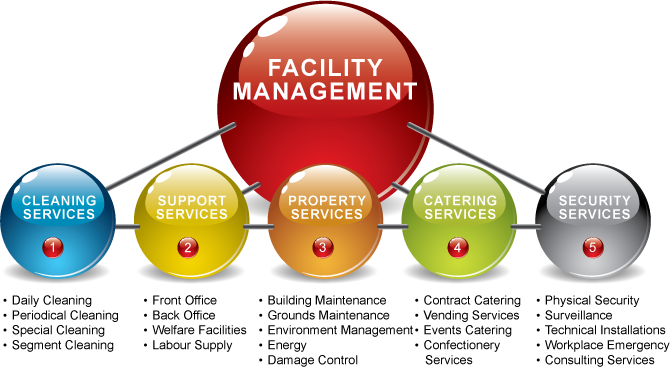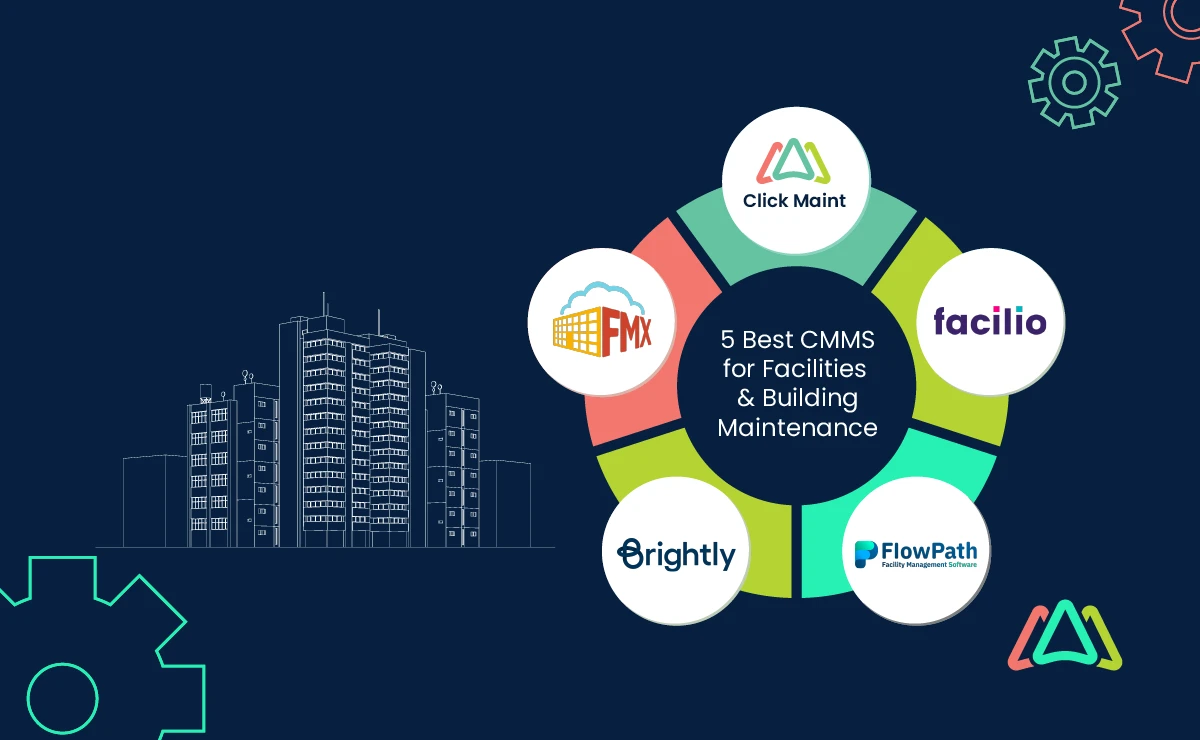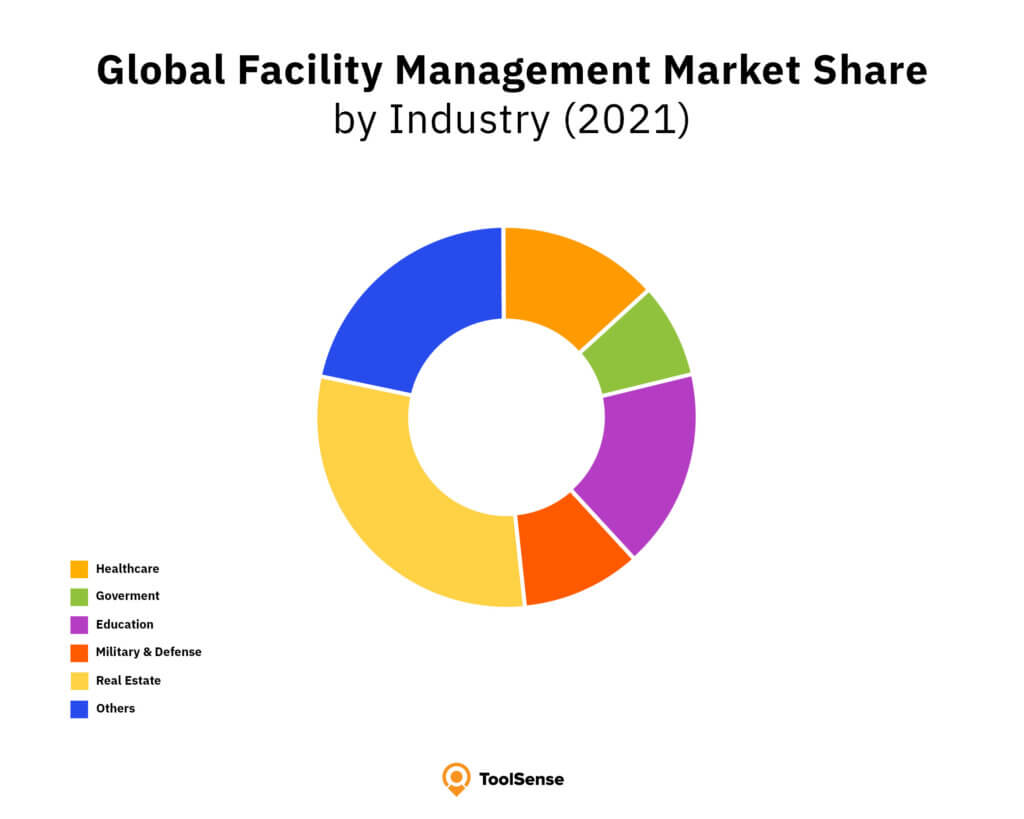The Role of Facility Management in Sustainable Operations
Key Patterns Forming the Future of Center Administration in 2024
As we look ahead to 2024, the landscape of facility management is poised for considerable change, driven by numerous vital trends. The integration of wise structure modern technologies and a change in the direction of data-driven decision-making promise to enhance operational effectiveness while focusing on sustainability in method.
Smart Structure Technologies

Smart building technologies incorporate a vast variety of systems, including smart illumination, a/c controls, and safety and security systems. By incorporating these systems, center managers can monitor and readjust parameters in real-time, leading to substantial reductions in power waste and operational costs. Smart sensors can detect tenancy levels and readjust illumination and temperature level appropriately, ensuring that energy is just used when required.
In addition, these technologies help with enhanced data collection, allowing companies to track usage patterns and determine possibilities for additional renovations. The implementation of clever building innovations not just contributes to sustainability goals yet also produces much healthier workplace that can boost worker performance and complete satisfaction.
As we relocate right into 2024, the adoption of wise structure innovations will likely increase, reflecting a wider change towards more smart, receptive, and sustainable facility administration techniques.
Data-Driven Decision Making
Progressively, companies are leveraging data-driven choice making to boost facility management methods. By using information analytics, facility managers can obtain workable understandings that dramatically improve operational efficiency and resource allowance. The assimilation of innovative technologies, such as IoT sensors and real-time monitoring systems, allows the collection of large quantities of data on building efficiency, tenancy rates, and power consumption.
This wealth of info enables facility managers to determine patterns, predict maintenance needs, and proactively address issues before they escalate. Anticipating analytics can anticipate devices failures, decreasing downtime and repair work expenses. Additionally, data visualization tools promote far better interaction amongst stakeholders, making sure that notified decisions are made collaboratively.
Furthermore, data-driven methods enhance strategic preparation by making it possible for center managers to assess the performance of current methods and make educated options concerning investments in modern technology or facilities. As organizations increasingly focus on operational excellence, data-driven choice making is poised to come to be a foundation of successful center administration techniques in 2024 and beyond. Inevitably, the capability to leverage information efficiently will empower companies to create extra effective, productive, and resistant facilities.
Sustainability and Green Practices
The focus on data-driven decision making normally aligns with the expanding concentrate on sustainability and environment-friendly practices within center monitoring. As organizations significantly prioritize ecological obligation, facility managers are leveraging analytics to enhance resource use, reduce waste, and decrease carbon footprints. This critical method makes it possible for the combination of energy-efficient systems, such as LED illumination, smart cooling and heating controls, and sustainable energy resources into center procedures.
In addition, the execution of sustainable techniques expands past power consumption. Center supervisors are advertising and adopting environment-friendly products recycling efforts to develop a round economic climate within click for info their centers. This not just enhances the environmental account of the company but likewise promotes a society of sustainability among employees.
Conformity with ecological laws is another vital facet driving the fostering of green methods. By using information analytics, center managers can keep track of compliance metrics and determine locations for renovation, ensuring adherence to local and worldwide sustainability criteria.
Crossbreed Job Versions
A significant shift towards hybrid work designs is reshaping the landscape of facility administration in 2024. This paradigm integrates in-office and remote job, requiring a reevaluation of area use, source allowance, and staff member engagement methods. Organizations are increasingly acknowledging the relevance of find out this here adaptable workspaces that deal with diverse needs and preferences.
Center supervisors need to adjust by executing versatile office styles that sustain joint efforts while offering areas for focused job. This consists of the combination of innovation to help with seamless interaction and collaboration amongst in-office and remote employees. Smart structure remedies, geared up with sensing units and analytics, allow for real-time tracking of area use, enabling organizations to enhance their settings efficiently.
In addition, crossbreed job versions highlight the requirement for efficient facility management that focuses on staff member experience. In essence, the crossbreed work design is transforming center monitoring, urging a positive technique to satisfy the progressing demands of the workforce.
Enhanced Owner Health
As organizations accept hybrid work models, a heightened concentrate on owner health is ending up being essential to facility monitoring strategies. Facility Management. This shift acknowledges that a healthy and balanced and completely satisfied labor force directly impacts performance and retention rates. Facility supervisors are now prioritizing settings that promote mental and physical well-being, incorporating aspects such as natural lights, biophilic style, and available wellness sources

Modern technology plays an essential function in this advancement. Smart structure systems can monitor environmental aspects and readjust setups in real-time, ensuring ideal comfort degrees - Facility Management. Feedback mechanisms, such as occupancy sensors and employee surveys, enable facility supervisors to consistently improve wellness campaigns based on occupant needs.

Conclusion
In 2024, the future of center administration will be dramatically affected by the integration of clever structure innovations and data-driven decision-making, promoting improved functional effectiveness. Sustainability efforts will focus on environment-friendly practices, while the emergence of crossbreed work models will certainly require flexible workplace styles. A heightened emphasis on resident health with advanced A/c systems and biophilic design will certainly contribute to much healthier work settings. These patterns jointly highlight the advancing landscape of facility monitoring in action to modern difficulties and opportunities.
Facility managers are promoting and embracing eco-friendly products reusing initiatives to produce a round economy within their facilities.A substantial change towards hybrid job versions is reshaping the landscape of facility administration in 2024.In addition, hybrid work designs highlight the need for efficient center monitoring that prioritizes employee experience.As organizations accept hybrid job versions, a heightened focus on resident health is coming to be important to center management techniques.In 2024, the future of facility administration will certainly be dramatically affected by the integration of smart building technologies and data-driven decision-making, promoting enhanced operational effectiveness.